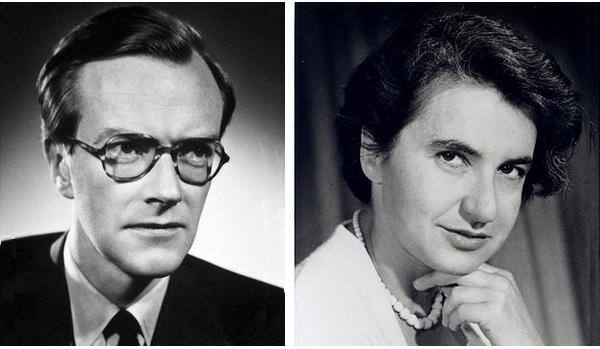If Franklin was not warmly forthcoming with her findings, she cannot be altogether blamed. Female academics at King's in the 1950s were treated with a formalized disdain that dazzles modern sensibilities (actually any sensibilities). However senior or accomplished, they were not allowed into the college's senior common room but instead had to take their meals in a more utilitarian chamber that even Watson conceded was "dingily pokey." On top of this she was being constantly pressed — at times actively harassed — to share her results with a trio of men whose desperation to get a peek at them was seldom matched by more engaging qualities, like respect. "I'm afraid we always used to adopt — let's say a patronizing attitude toward her," Crick later recalled. Two of these men were from a competing institution and the third was more or less openly siding with them. It should hardly come as a surprise that she kept her results locked away.

That Wilkins and Franklin did not get along was a fact that Watson and Crick seem to have exploited to their benefit. Although Crick and Watson were trespassing rather unashamedly on Wilkins's territory, it was with them that he increasingly sided — not altogether surprisingly since Franklin herself was beginning to act in a decidedly queer way. Although her results showed that DNA definitely was helical in shape, she insisted to all that it was not.












